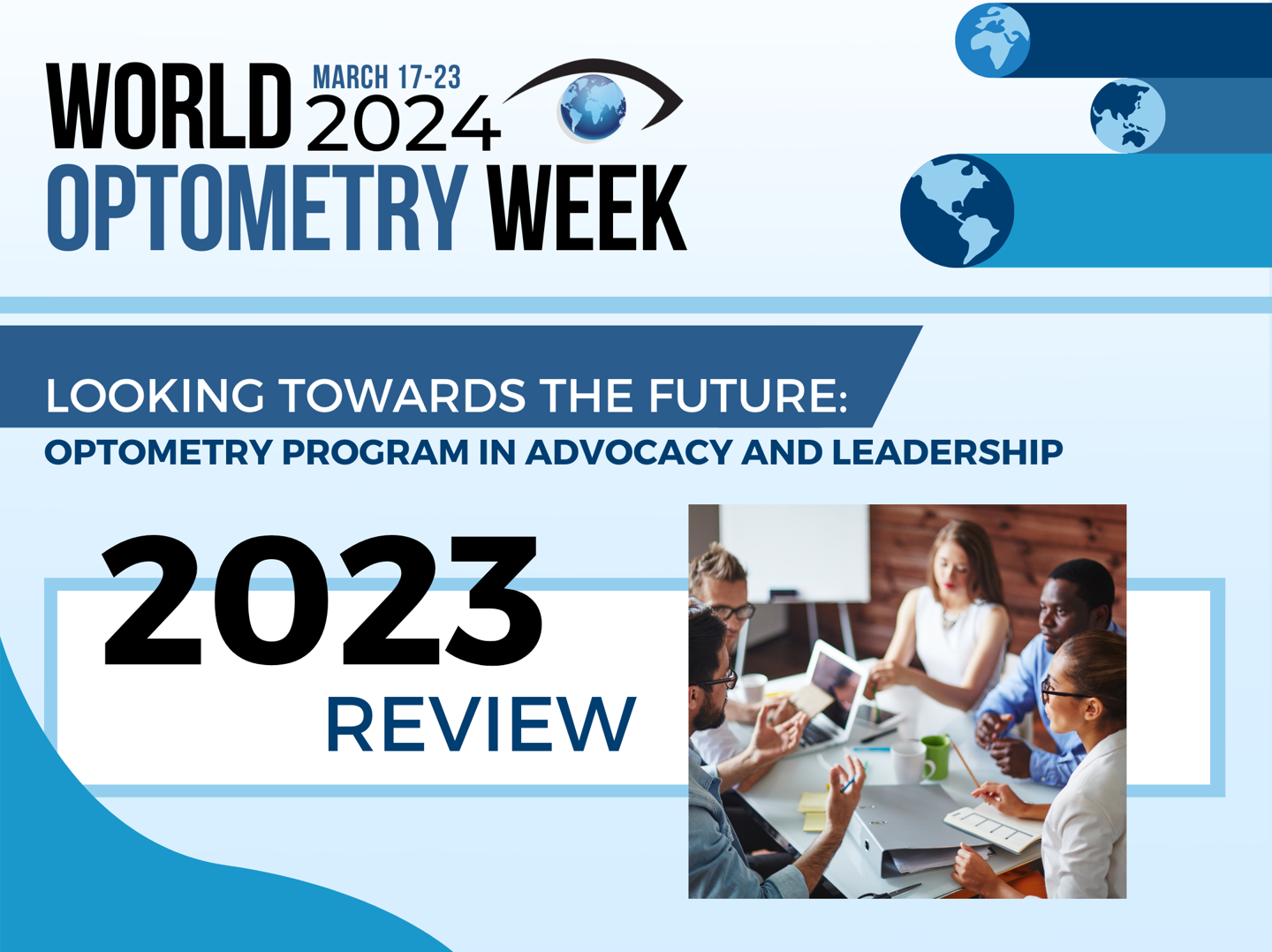Dr. Don Lyon, WCO Public Health Committee Vice-Chair
A recent article Published in JAMA Ophthalmology indicates globally, there has been a 91.46% increase in visual impairments in the working-age population (15-64 years of age) between 1990 and 2019.1 The authors state, “…vision impairment in working-age individuals is a growing global health challenge. Countries with a lower sociodemographic index have a higher disease burden for most causes of vision impairment. This may be due to the lack of appropriate infrastructure and resources for preventing and treating vision impairment. It is suggested that “this data could assist policymakers and clinicians in formulating suitable strategies for visual impairment prevention and treatment.”1
Data is essential to impact change. Along with the data, we need action. What action can an optometrist take to help create accessible, affordable, people-centered vision care for patients? Advocacy is one answer. Advocacy is a process that can begin locally and expand. It is a process where we can help each other develop similar programs across nations. It is a way to guide policymakers as they look to improve the state of healthcare at their location.
When appropriately used, advocacy can have a powerful impact on improving the quality of vision care. But how do you know when advocacy may be the answer to the problem? How do you start an advocacy program? The World Council of Optometry’s Optometry Program in Advocacy and Leadership (OPAL) aims to answer these and many other questions for optometrists interested in creating an advocacy program that elevates vision care for their fellow citizens.
Through the gracious continued sponsorship of Optometry Giving Sight, OPAL recently completed its third year of providing education on developing advocacy programs for interested optometrists. Twenty-five participants representing the six regions of WCO completed the online program. OPAL strives to start each participant on their advocacy journey using high-caliber speakers and providing detailed course content. Our speakers are experts in their specific areas. They included representatives from the International Agency for the Prevention of Blindness, the Fred Hollows Foundation, PEEK Vision, and additional optometrists with experience in advocacy and leadership. Each speaker was glad to share their knowledge with the newer advocates, knowing that doing so improves vision care worldwide.
The course content was given weekly, utilizing Zoom. Most talks were presented live, so the attendees could directly ask questions to the expert and learn in real-time. The content was presented in a manner that allowed the participants to work through the necessary steps to create an advocacy program. Participants were encouraged to use a single idea to develop an advocacy project throughout the program. In addition to the weekly activities, they completed a capstone project. This project was a complete proposal of their advocacy project and was reviewed by the program leadership at the end of the course. After that, it is up to them to continue developing and actively engaging in the proposed project or use their new skills and confidence to develop further programs.
OPAL provides education and experiential content to optometrists interested in advocacy, no matter their specific interests. While many programs were developed for school-based vision screenings, participants also developed programs to improve access for patients with low vision, increase the availability of contact lenses for myopia management, improve access to the treatment of diabetic retinopathy and glaucoma, and improve access to general optometric care in remote areas of their country. OPAL is not intended to be the final step in advocacy but an essential first step. Participants realize they must connect with other optometrists and policymakers to develop their programs further.
The post-course survey shows that every participant thought the program met or exceeded their expectations and that they gained confidence in advocating for improved eye health. One individual wrote,
“OPAL was an eye-opening experience for me as a student, providing valuable insights, resources, and guest speakers on advocacy work.”
Another participant wrote,
“The program challenged my way of thinking and broadened my perspective to approach situations and dilemmas with curiosity and to create detailed plans.”
Advocacy is not something that you can do alone. Each year, as we gain more optometrists engaged in advocacy, we grow an international network of like-minded individuals who can assist others in various ways. Optometrists who can mentor and share information so that a program started locally may impact a country halfway around the world. This is how we improve access to and affordability of vision care as a profession. This is how we help the newly identified underserved population of working-aged individuals and all the previously identified “underserved” populations.
WCO will continue to offer this program in 2024 as we look forward to having a new group of optometrists learn about advocacy and leadership to improve vision care further and expand the network of optometrists engaging in advocacy internationally.
- Chen J, Yang C, Zheng W, et al. Global, Regional, and National Epidemiology of Visual Impairment in Working-Age Individuals, 1990-2019. JAMA Ophthalmol.2024;142(1):25–32.


